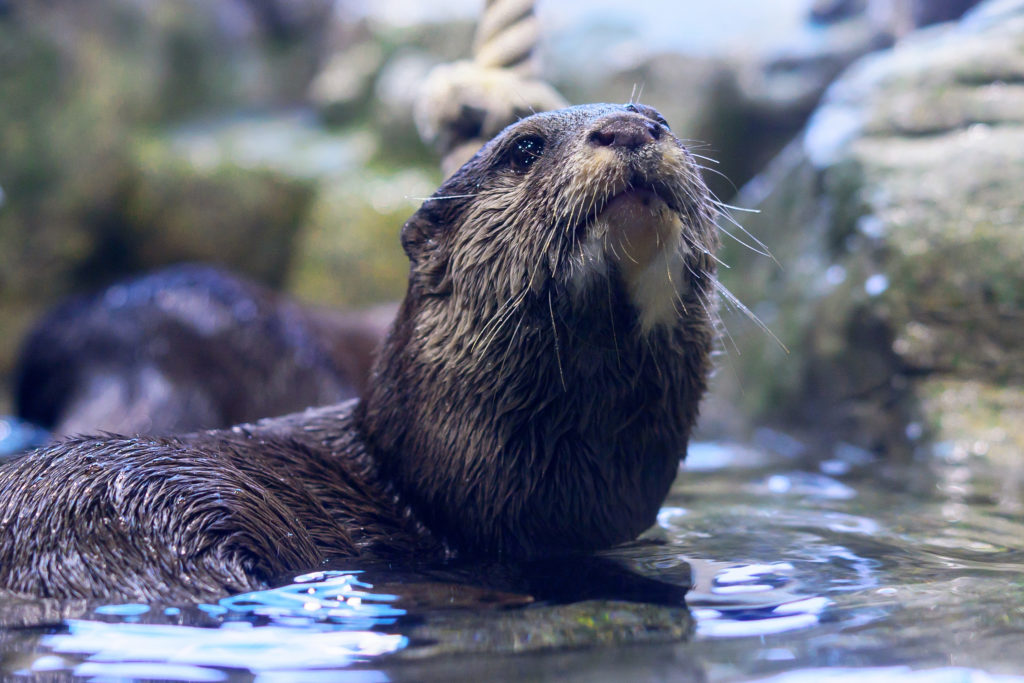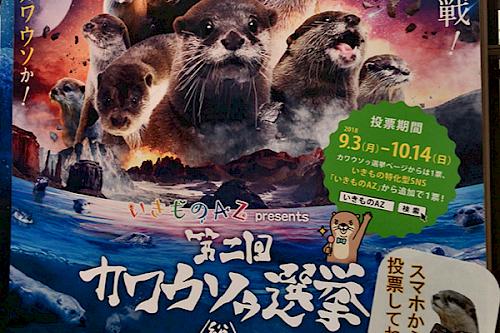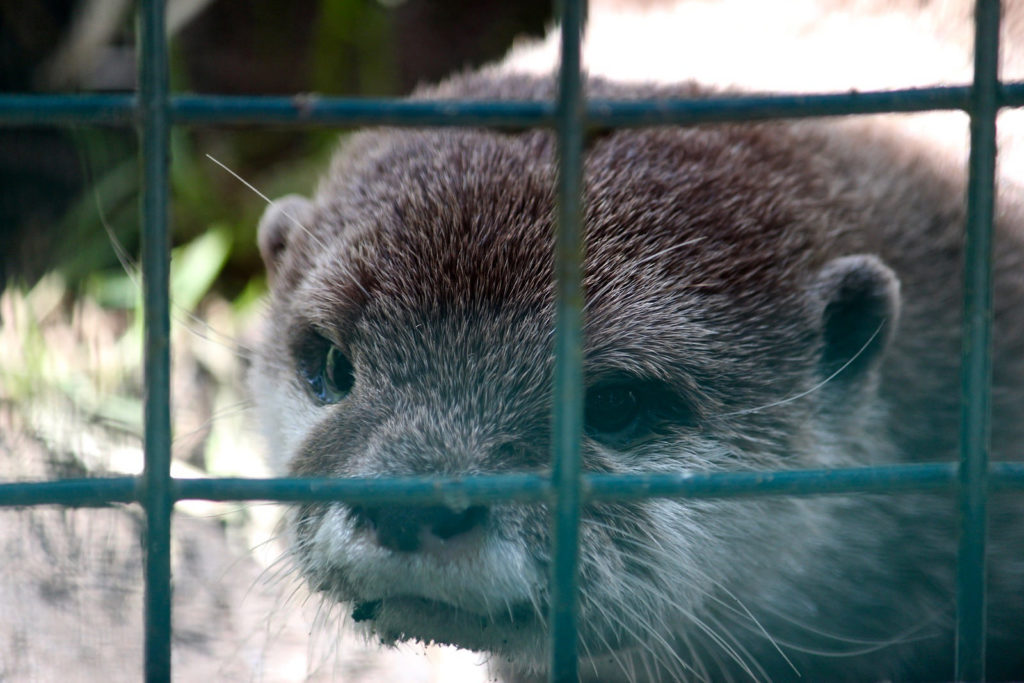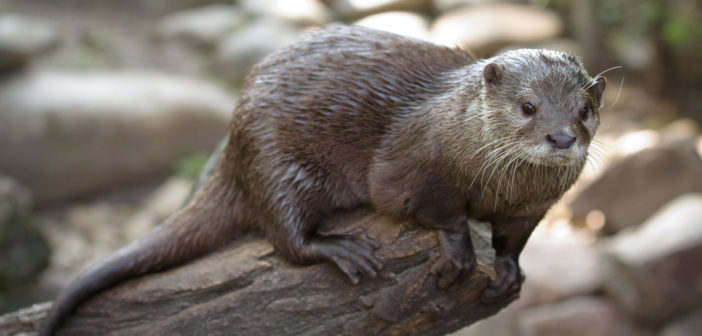A boom in demand for otters as pets in Japan, particularly the small-clawed otter, has been linked to rising numbers of “otter cafés,” high-profile television programs featuring otters and celebrities, and the popularity of otter pet “superstars” on social media platforms.
The surging demand for otters in Japan has led to an increase in smuggling of the animals from Southeast Asia and a rise in instances of “unregulated” domestic otter trade, according to the new TRAFFIC and WWF joint study Otter Alert: A rapid assessment of illegal trade and booming demand in Japan.
In 2016 and 2017, at least 39 mostly juvenile small-clawed otters (Aonyx cinereus) were seized in five incidents, all destined for Japan. In every case, Thailand was the source country and Japanese nationals were arrested for the illegal possession and attempted smuggling, says the report.

A small-clawed otter at Enoshima Aquarium in Fujisawa, Japan. Image credit Toshihiro Gamo, CC BY-SA 3.0.
Meanwhile, popular television programs in Japan have helped boost the profile of the animals. One long-running series television series (Tensai Shimura Dobutsuen, broadcast by Nippon TV) featured celebrities interacting with small-clawed otters in anthropomorphic situations, such as travelling together and raising them at home.
“The show likely planted the image of otters with humans (in this case, celebrities), which presumably served to give viewers the impression that otters are more suitable as pets than they really are,” write the report’s authors.
The study identified at least 20 private otter owners with large numbers of social media followers—one of them with more than 750,000—several of whom said they had purchased the animals after watching TV series about otters.

A poster announcing a 2018 Japanese online “election” event for otters kept at zoos and aquariums. Image via TRAFFIC.
The popularity of otters kept at zoos and aquariums has also evolved into an entertainment event in Japan called “the otter election,” which took place in 2017 in 2018, with the public voting online for their favorite otters. In recent years there has also been an increase in the number of “otter cafés” in major cities such as Tokyo, where visitors can feed or interact with the animals for a fee.
“The boom in the popularity of otters as pets is unquestionably linked to their active promotion by owners on social media outlets, in otter cafés, and in high profile media outlets.
These owners and the media outlets bear a social responsibility not to encourage the purchase of otters, which may have entered the pet trade under dubious circumstances or even be illegally smuggled into Japan.”
Report co-author Naruse Yui
The report’s authors call for action by enforcement authorities and the judiciary to prevent and deter otter smuggling operations, closer monitoring of supposed otter breeding facilities in source countries, and better regulation and monitoring of domestic trade in non-native species both by individuals and by zoos, aquariums and other facilities. Mass media companies and private owners on social networking sites should also consider their role in encouraging demand for exotic pets.
An open letter written signed by Dr Nicole Duplaix, Co-Chair of the International Union for Conservation of Nature Species Survival Commission’s Otter Specialist Group, endorses the report’s findings and points out that “Otters are small carnivores that do not make suitable pets under any circumstance.”

A small-clawed otter at Ponderosa Farm in the United Kingdom. Image credit Neil Turner, CC BY-SA 3.0.
Japan has a long-standing global reputation as a major market for exotic pets, where rare and threatened species from various taxa are traded, sometimes illegally. The potential impact of such trade on the environment can be severe. In Japan, common raccoons (Procyon lotor) introduced from North America as pets in the 1970s as a result of a popular cartoon series broadcast on national television became established in the wild through escapes and deliberate releases. This resulted in harm to ecosystems and humans, including competition with and predation of native species, damage to agricultural products and buildings, and transmission of diseases such as rabies.
“During our study we documented instances of unwanted otter pets: there is a clearly a risk such animals may be deliberately released into the environment with unknown, but potentially devastating impact,” said Yui. “We urge those thinking of owning an otter to think again.”
Read the entire report Otter Alert: A rapid assessment of illegal trade and booming demand in Japan (12 MB pdf) here. The report is also available in Japanese here.
Featured image: a small-clawed otter at Zoo Karlsruhe in Germany. Image credit Cloudtail the Snow Leopard, CC BY-SA 3.0.





